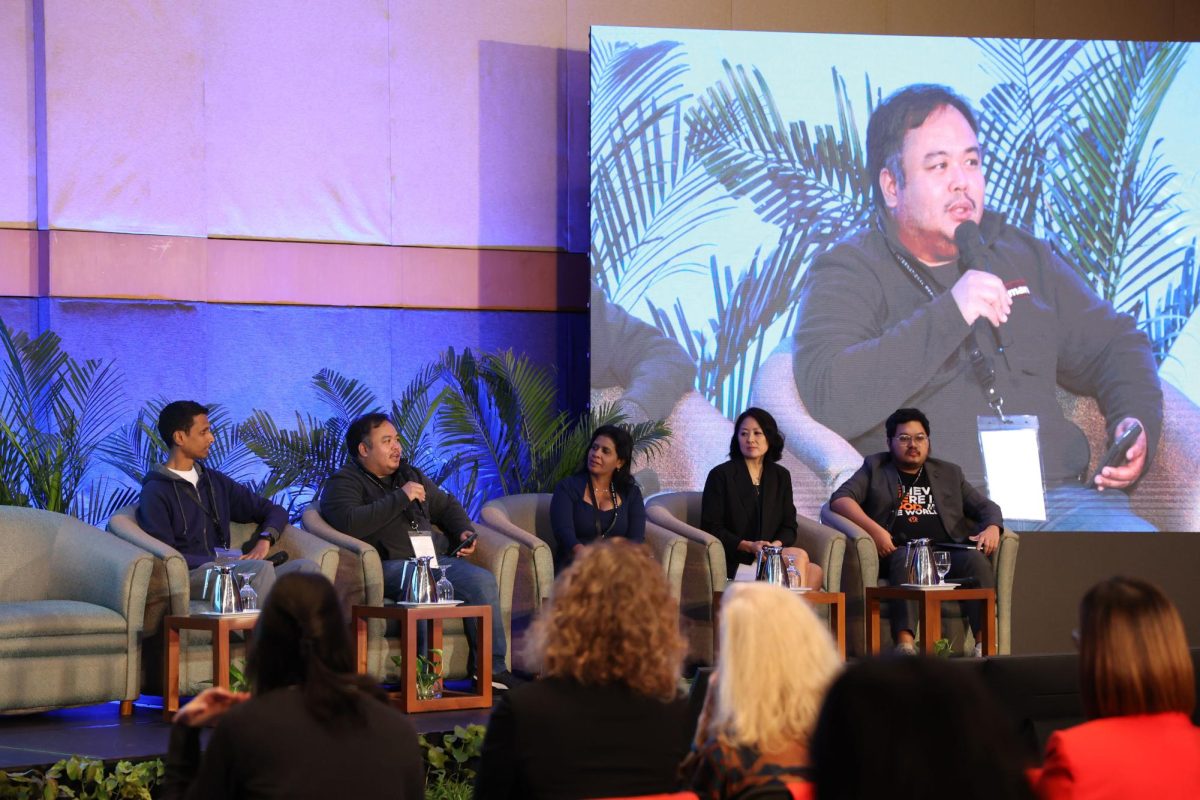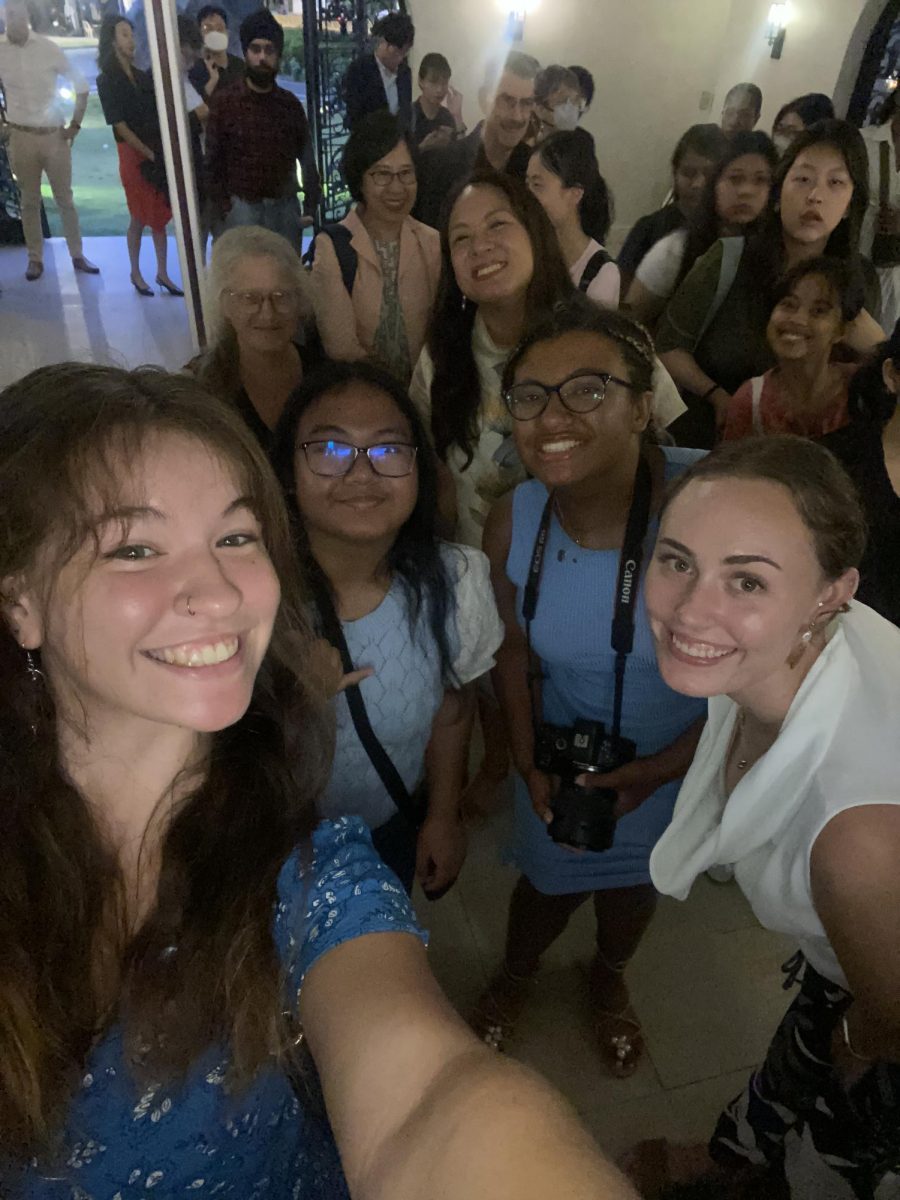The East-West Center (EWC) kicked off this year’s International Media Conference at the Philippine International Convention Center in Manila, with sessions themed “Journalism in the Generative Age.”
Day 1 featured a two-hour discussion exploring how journalists are navigating the growth of artificial intelligence in their field.
Traditional news media face a pivotal moment: embrace the technology-driven era and uphold the legacy of traditional journalism, while grappling with ethical challenges.
The conference convened influential journalists from around the globe to discuss the integration of AI in newsrooms. Among them were Khalil Cassimally, Head of Audience Insights at The Conversation (Melbourne, Australia); Don Kevin Hapal, Head of Data and Innovation at Rappler (Pasig, Philippines); Irene Jay Liu, Regional Director for Asia & the Pacific at the International Fund for Public Interest Media (Singapore); and Jaemark Tordecilla, 2024 Norman Fellow for Journalism and Former Editor-in-Chief of GMA News Online (Manila, Philippines). Moderating the discussion was Dilrukshi Handunnetti, Co-founder & Director, Center for Investigative Reporting (Colombo, Sri Lanka).
The discussion touched on various topics, including the positive impacts of AI from generating story ideas to enhancing journalists’ training within different sectors like data journalism.
“For example, here in the Philippines, there’s a strong emphasis in journalism education on perfecting copy. However, with AI tools, this focus is less of a priority.” Cassimally said.
Severino, who has been integrating AI to attract a younger audience, says the main issues youth face with newsrooms is that the information often feels too distant from their lives and that AI can provide a better connection.
“We still had the 800 word articles and people were reading them, but for the younger audience we provided them with the same information but in different formats such as bullet points and audio. AI really helped to put those ideas out in a fast manner,” Severino said.
Panelists also addressed how AI can help alleviate staffing shortages and discussed the responsibility of tech companies and platforms in managing disinformation. Concerns were raised about the potential harm that AI controlled by western corporations could cause to indigenous or smaller communities.
“I find intriguing about generative AI is its reliance on language and culture,” Liu said. “If most engineers are based in the west and data used for these technologies are primarily in English or a few major languages, it may not be culturally relevant.”
The panel concluded with a Q&A session, where attendees debated the merits and concerns surrounding the use of AI in journalism and discussed strategies for navigating AI in their respective countries.
“One thing I would say if we want to ensure that there is an inclusive diverse ecosystem of information,” Liu said. “ What needs to happen which has not happened in the history of the news industry is there needs to be more collaboration across newsrooms and engaging conversations among journalists regarding the future of AI as it’s not going away anytime soon.”









